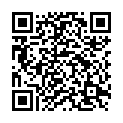|
|
|
| Module code: KI820 |
|
|
4P (4 hours per week) |
|
6 |
| Semester: 2 |
| Mandatory course: yes |
Language of instruction:
German |
Assessment:
Project work, oral examination
[updated 29.06.2007]
|
KI820 (P222-0069) Computer Science and Communication Systems, Master, ASPO 01.04.2016
, semester 2, mandatory course
PIM-WI64 (P222-0069) Applied Informatics, Master, ASPO 01.10.2011
, semester 2, optional course, informatics specific
|
60 class hours (= 45 clock hours) over a 15-week period.
The total student study time is 180 hours (equivalent to 6 ECTS credits).
There are therefore 135 hours available for class preparation and follow-up work and exam preparation.
|
Recommended prerequisites (modules):
KI715 Formal Telecommunication Methods
[updated 03.07.2025]
|
Recommended as prerequisite for:
|
Module coordinator:
Prof. Dr. Reinhard Brocks |
Lecturer:
Prof. Dr. Reinhard Brocks
[updated 01.04.2003]
|
Learning outcomes:
After completing this module students will be acquainted with the technical aspects of employing communication protocols and will be in a position to use development tools for protocol implementation. During this module students will acquire new knowledge and be able to apply what they have learnt in real practical contexts. They will also be able to present and discuss specialist knowledge and ideas. They will be in a position to take on a responsible role within a team, to share knowledge and ideas and to coordinate work with others.
[updated 29.06.2007]
|
Module content:
Students will carry out a software project in the field of communication networks. A typical project might involve implementing a protocol service or a specific protocol function. The project will be split up into modules. These modular tasks are tackled by students working individually or in small groups. Their end results are combined and tested. During this work students may be expected to work with previously unknown software libraries and tools. In the course of the project, students will also be expected to give presentations on their work and to document their progress. The project will conclude with a final presentation session.
Technical aspects covered: implementation of protocol layers and state automata; API design; plug-ins and add-ons; interprocess communication; threads; timers; synchronous and asynchronous interfaces; coding and decoding modules; tracing and logging; scheduling; fault-tolerance; active/standby; high-availability; test environments
CASE tools: IDEs; UML tool; SDL tool; ASN.1 compiler; C/C++/Java compiler; version management; BUILD utility; packet manager
[updated 29.06.2007]
|
Recommended or required reading:
Students will generally work with the protocol specifications and product descriptions for special tools or interfaces. Books on programming, software development, system-level programming and software design will also be used. The actual reading list will depend on the details of the project being carried out.
[updated 29.06.2007]
|
Module offered in:
SS 2019,
SS 2018,
SS 2017,
SS 2016,
SS 2015,
...
|


